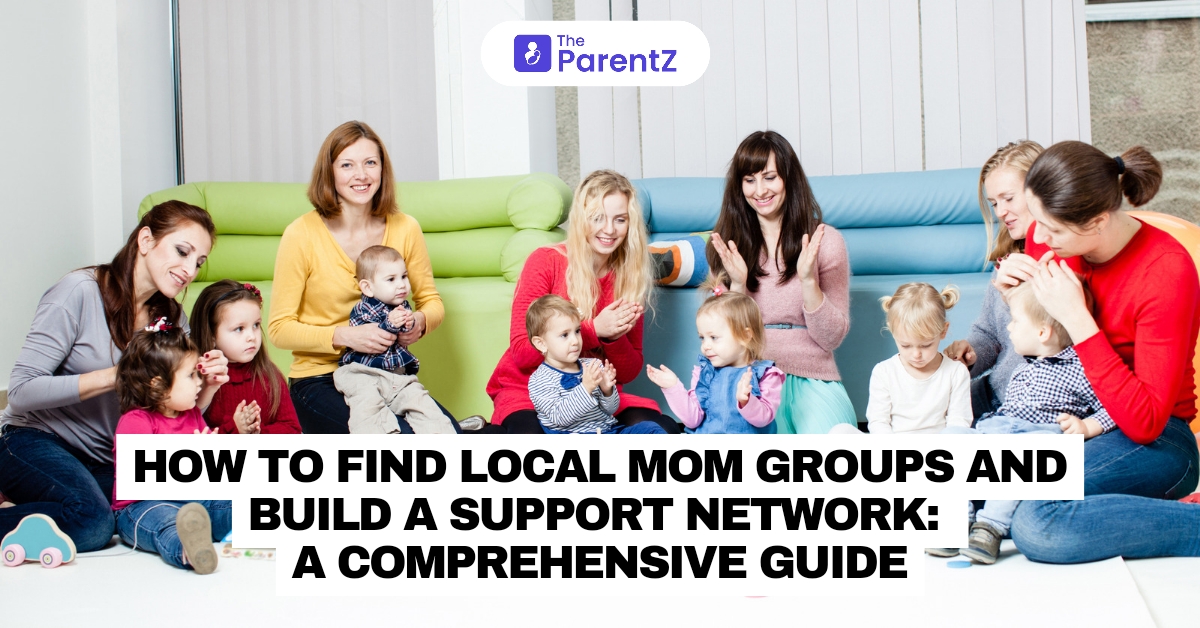Building a support network through local mom groups can be a lifeline for many mothers. Whether you’re looking for advice, friendship, or a sense of community, local mom groups provide invaluable support. This article explores how to find local mom groups, the benefits of joining them, and practical tips for building a robust support network.
Why Join Local Mom Groups?
Emotional Support
Motherhood can be challenging, and having a group of peers who understand your experiences provides emotional support. Sharing your journey with others who are in the same boat can alleviate feelings of isolation and stress.
Exchange of Ideas and Advice
Local mom groups are a great resource for exchanging parenting tips and advice. From sleep training techniques to meal planning, these groups offer a wealth of practical knowledge.
Socialization for Moms and Kids
These groups provide socialization opportunities for both moms and children. Playdates, outings, and group activities foster friendships and developmental growth for your little ones.
Community Building
Joining a local mom group helps build a sense of community. You’ll meet diverse individuals, form lasting friendships, and create a support system that extends beyond motherhood.
How to Find Local Mom Groups
1. Use Social Media and Online Platforms
Facebook Groups
Facebook is a popular platform for finding local mom groups. Use the search bar to find groups in your area by typing keywords like “local mom groups,” “moms in [your city],” or “playgroups in [your area].” Join the groups that seem active and supportive.
Meetup
Meetup is a platform designed to connect people with similar interests. Search for mom groups or parenting meetups in your area. Many groups organize regular activities and events, making it easy to meet other moms.
Nextdoor
Nextdoor is a neighborhood-focused social network where you can connect with local moms. Join your neighborhood group and look for posts about mom meetups or start your own thread to gather interested moms in your area.
2. Visit Community Centers and Libraries
Community centers and libraries often host mom-and-me classes, storytime sessions, and parenting workshops. Check their bulletin boards or websites for information about local mom groups and events.
3. Attend Local Events and Activities
Look for local events such as farmer’s markets, festivals, and children’s activities. These gatherings provide opportunities to meet other moms and learn about existing groups in your community.
4. Ask Healthcare Providers
Pediatricians, OB/GYNs, and family doctors often have information about local mom groups. Ask your healthcare provider for recommendations or check if they have flyers or bulletin boards with group information.
5. Join Parenting Classes and Workshops
Parenting classes and workshops are excellent places to meet other moms. Many hospitals, community centers, and non-profit organizations offer classes on various topics related to parenting and child development.
How to Build and Maintain a Support Network
1. Be Proactive and Open
Take the initiative to introduce yourself and join conversations. Being open and friendly can help you form connections quickly. Don’t hesitate to reach out to other moms and suggest meetups or playdates.
2. Attend Regularly
Consistency is key to building strong relationships. Attend group meetings and events regularly to establish a presence and deepen your connections with other members.
3. Participate Actively
Get involved in group activities and discussions. Share your experiences, offer advice, and be supportive of others. Active participation fosters a sense of belonging and strengthens your support network.
4. Organize Your Own Events
If you don’t find events that suit your interests or schedule, consider organizing your own. Host a playdate, coffee meet-up, or a mom’s night out. Creating opportunities for interaction helps build a close-knit community.
5. Use Technology to Stay Connected
Create group chats on platforms like WhatsApp or Facebook Messenger to stay connected outside of meetings. Share updates, plan events, and offer support through these channels to maintain strong bonds.
Benefits of a Strong Mom Support Network
Improved Mental Health
Having a support network can significantly improve your mental health. Sharing your struggles and joys with others who understand your journey reduces stress and enhances well-being.
Increased Confidence
A supportive network boosts your confidence in parenting. Knowing you have a group to turn to for advice and encouragement helps you feel more capable and assured in your parenting decisions.
Lifelong Friendships
The friendships formed in mom groups often extend beyond the early years of parenting. These relationships provide a source of companionship and support throughout different stages of life.
Enhanced Child Development
Socializing with other children helps your child develop social skills and build friendships. Participating in group activities exposes them to new experiences and learning opportunities.
Conclusion
Finding local mom groups and building a support network can make a significant difference in your parenting journey. By using social media, visiting community centers, attending local events, and being proactive, you can connect with other moms and create a robust support system. The benefits of a strong mom support network extend beyond emotional support, fostering lifelong friendships and enhancing both your and your child’s well-being.








Be the first one to comment on this story.